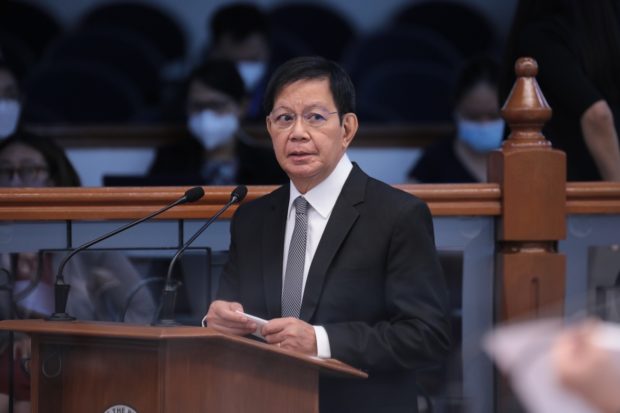Ample safeguards in place to prevent abuse of anti-terror law – Lacson
MANILA, Philippines — The Supreme Court was correct in its interpretation of the law as well as its ruling that the Anti-Terrorism Act (ATA) has enough safeguards to prevent it from being abused by state agents, former Sen. Panfilo Lacson said on Tuesday.
The author and principal sponsor of Republic Act No. 11479, or the Anti-Terrorism Act of 2020, also played down lingering concerns that the law would infringe on people’s right to privacy by allowing surveillance on suspected terrorists.
“Aside from the other safeguards provided in the [law] against possible abuse by law enforcement agents, we have effectively amended the Anti-Witretapping Law, which only requires a regional trial court judge to authorize law enforcement officers to conduct technical surveillance on persons suspected of committing certain crimes,” Lacson said.
The former chair of the Senate committee on national defense and security, peace, unification and reconciliation made the statement after the high tribunal, through an ad hoc committee, promulgated the special rules of procedure for implementing the antiterror law that would take effect on Jan. 15.
Specific guidelines
Under said rules, law enforcers would need to secure an order from the Court of Appeals to secretly conduct terrorism-related surveillance activities, including wiretapping of conversations, and intercepting, recording or collecting any private communications of suspected terrorist individuals or groups.But surveillance orders would generally be limited to members of a judicially proscribed terrorist organization, those identified as “subjects or targets,” or any person charged with or suspected of committing any of the crimes defined and penalized under the said law.
Article continues after this advertisementLacson said that under the ATA, a division of the Court of Appeals now has the authority to issue that judicial warrant involving complaints for violation of the antiterror law.
Article continues after this advertisementBut he clarified that this was not a new government policy. “The arrest and detention without judicial warrant is akin to citizen’s arrest, which is already allowed under existing jurisprudence,” Lacson said.
He also played down concerns over the prolonged detention period that may be allowed for persons suspected of terrorism.
“We merely extended the allowable period of detention due to the unusual nature of the crime of terrorism, which could arbitrarily endanger the lives of innocent civilians more than the violations of the Revised Penal Code and other special laws,” Lacson added.
The Supreme Court emphasized that a violation of any provision of the rules or any duly issued court order would be a ground for contempt.
